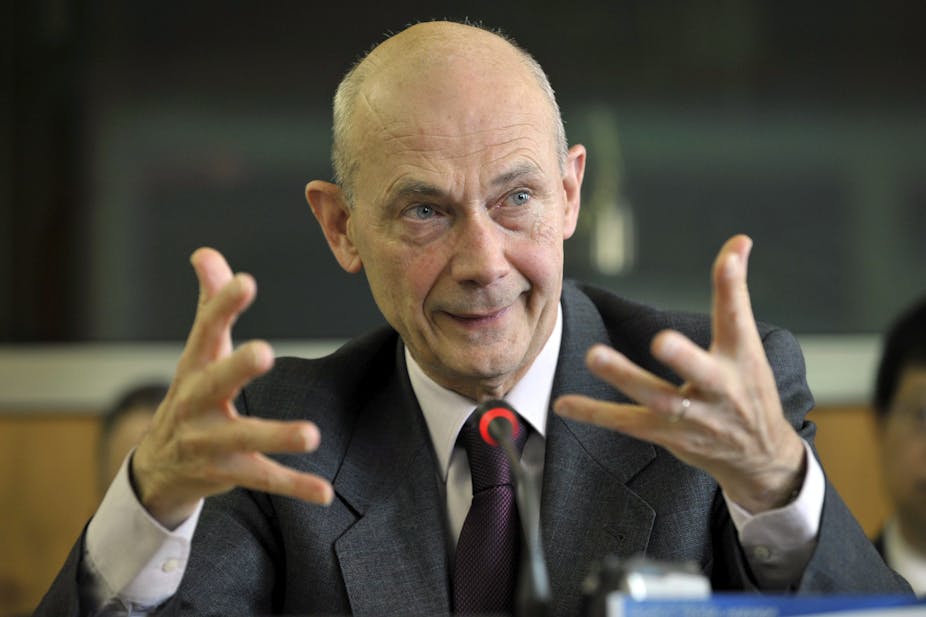Recent complaints to the World Trade Organisation (WTO) by the US, EU and Japanese governments against China have highlighted once again the difficulties facing the largest trading partners in the global economy. They argue that China has breached WTO rules by restricting its exports of rare earths, tungsten and molybdenum. The restrictions by China could have serious ramifications for manufacturing worldwide.
But what are rare earths, tungsten and molybdenum? And why have they received such attention of late?
These minerals are vital raw materials used in the manufacturing of metals and metal products for a range of high-tech goods such as cell phones, aircraft bodies, wind turbines, solar panels, and batteries.
China supplies about 95% of the world’s annual output of rare earths.
The complaints are the latest in a long line of controversies that have highlighted WTO dispute settlement procedures against China’s restrictions on a range of mineral exports.
These countries and others have previously complained to the WTO about Chinese export restrictions on minerals such as bauxite, fluorspar, magnesium and manganese, also used in the manufacture of both high-technology and everyday products.
The complainant countries argue that the Chinese export restrictions will no doubt raise the price they will have to pay to buy such minerals, while their Chinese competitors won’t be affected by such restrictions. This would therefore give a competitive advantage to Chinese manufacturers of the metal products and the downstream goods which embody them.

But the main importance of the case is that it is another symptom of growing malaise in the world trading system with Chinese interventions on trade in the goods they export and import. Several other complaints have been lodged against China’s use of subsidies, pricing by state-owned enterprises and dumping practises in its export and import industries in the last few years.
In the previous case relating to mineral raw materials, China countered that restrictions were necessary to conserve supplies of exhaustible natural resources and to protect the health of its citizens.
GATT Article XI, which still applies in the WTO, requires the general elimination of all quantitative restrictions on both export and import trade. However, another article, Article XX, allows some general exceptions for reasons such as protecting human, animal and plant life and health or protecting national treasures.
In the case of these minerals, the general exception relates to the conservation of exhaustible natural resources; but it also stipulates that it shall apply “(only) if such measures are made effective in conjunction with restrictions on domestic production and consumption”.
The WTO panel that investigated the earlier case ruled that China had not demonstrated that it had imposed the same restrictions on Chinese domestic production or consumption.
It also ruled that China had waived the general restrictions on some of the raw materials under the terms of the agreement under which China acceded to the WTO in 2001. China appealed to the WTO Appellate Body against the panel decision, but the original judgement was upheld, with minor variations.

These disputes raise the more general matter of restrictions on national sovereignty and the ability of a WTO member nation to choose measures to pursue domestic policy objectives. It is certainly true that these choices are restricted in relation to international trade in goods.
But it is in the nature of a binding multilateral agreement that all signatories agree to be bound by stated rules on a mutual basis. Moreover, these cases relate to an article of the GATT that has applied since its founding in 1947. There is nothing new about these restraints on national sovereignty.
The broader concern that lies behind the objections by the US, EU and Japan, is the issue of competitiveness in world markets.
China’s exports have been increasing in volume at a rate much faster than that of the exports of the other dominant world suppliers. China has also been running huge annual surpluses in its balance of trade with these countries. China is naturally competitive in a wide range of manufactured goods because of its low labour costs and the scale of its industries.
The other dominant suppliers allege, however, that this advantage has been artificially and significantly augmented by a number of measures, some of which are subject to WTO discipline and appeals, such as subsidies and dumping, while others are not.
It has been debated that one of these measures is that the Chinese Renminbi has been substantially undervalued.
While this is outside the discipline of both the WTO and the IMF, it has no doubt soured the general trading environment.
Whether or not China will have total freedom to continue to restrict its exports of minerals remains to be seen. But there is no doubt that with today’s volatile markets and the need for nation-states to increase competitiveness in the global economy, the large trading partners will continue to jostle for market share for the foreseeable future.

